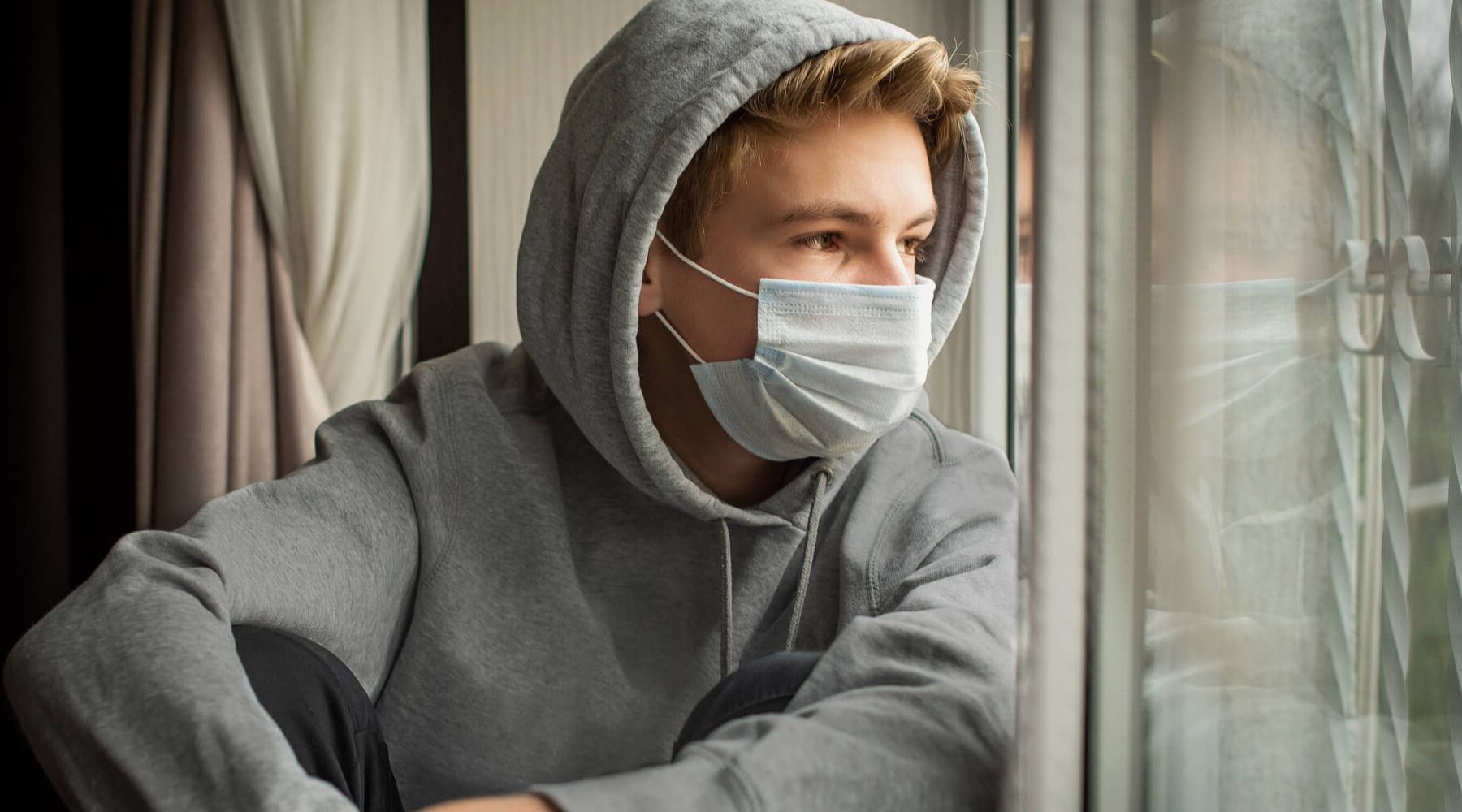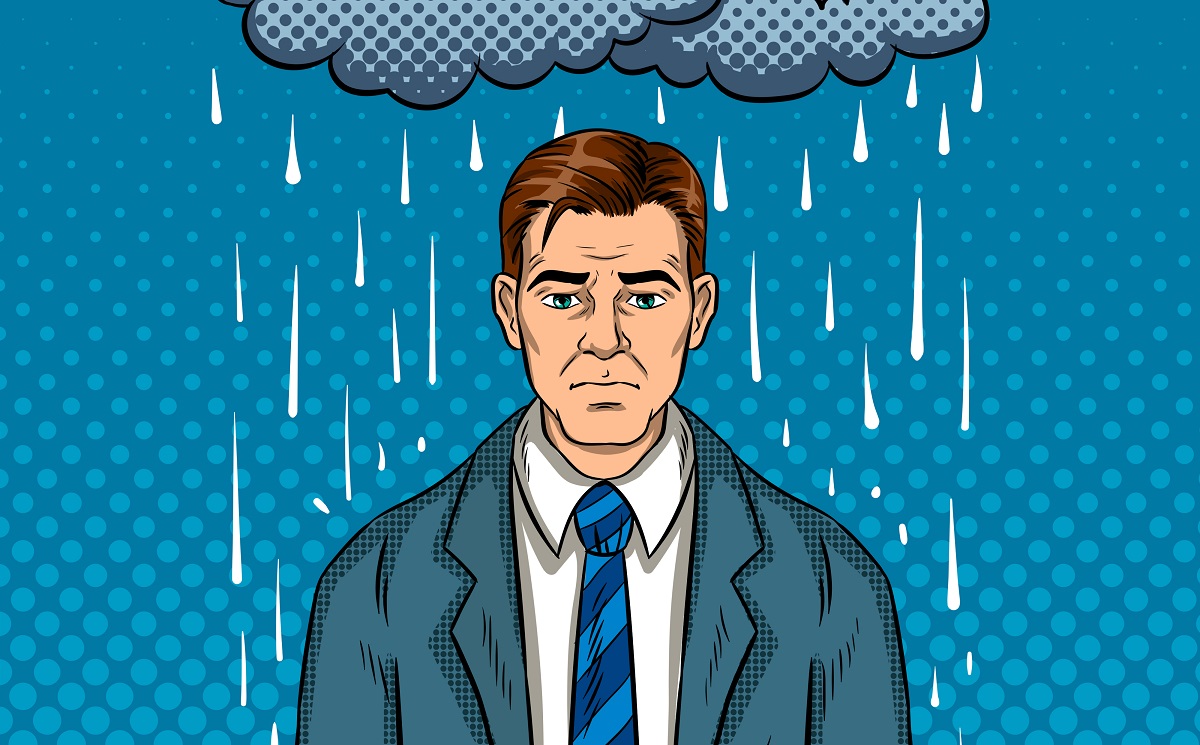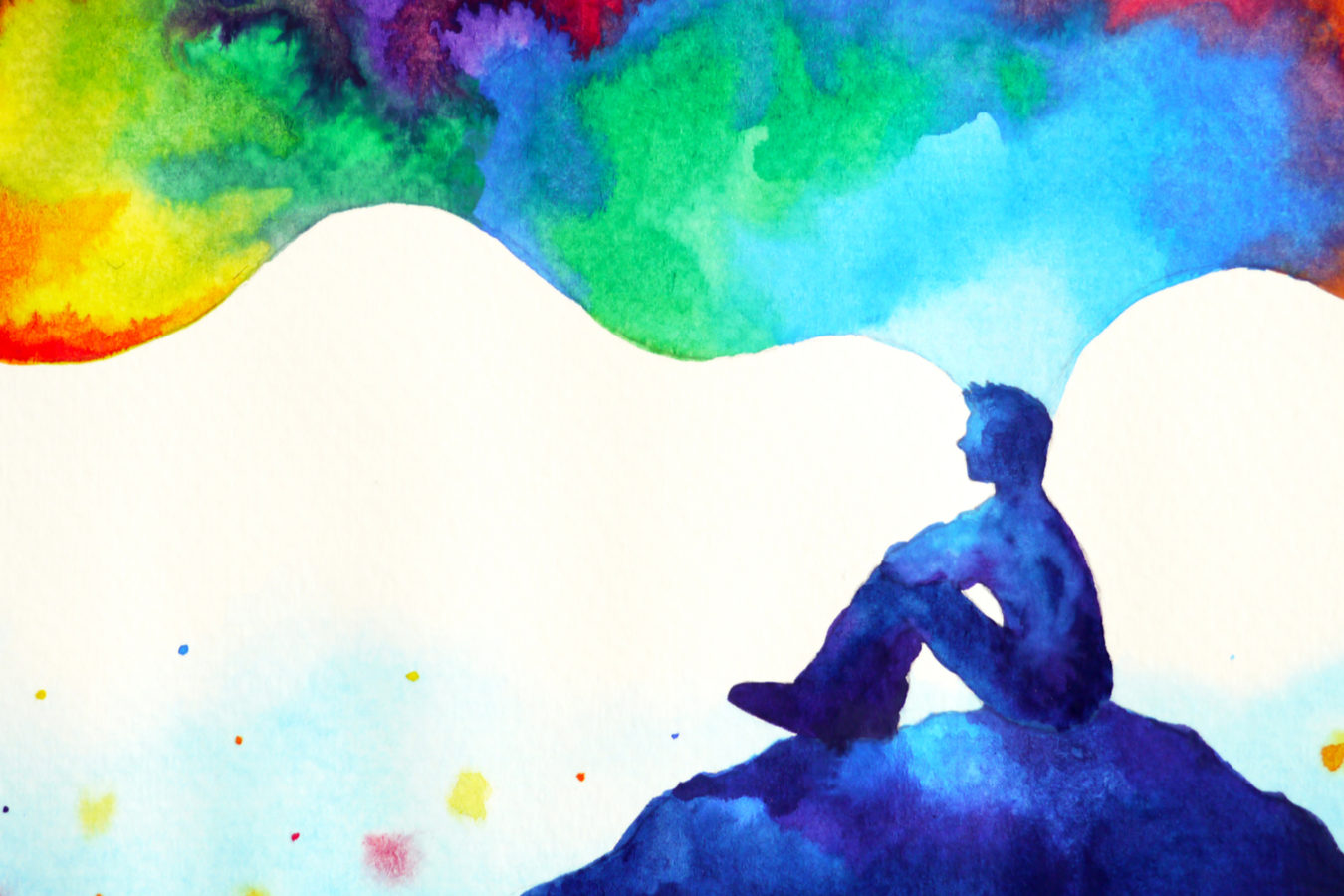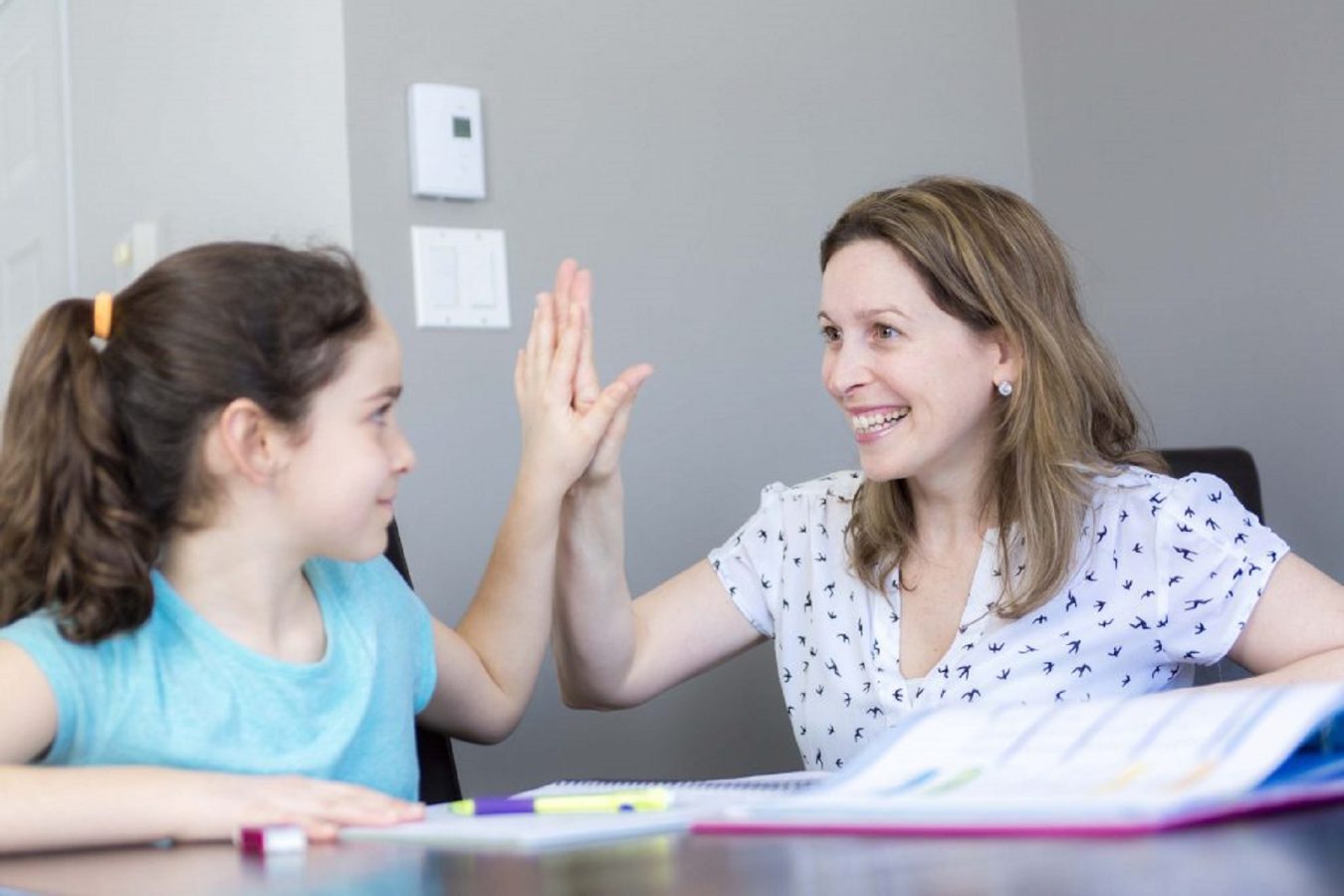
Our teenagers have been doing it hard in the pandemic. Leading adolescent psychologist Andrew Fuller offers them some advice and tips on how to get through it.
If you are feeling ‘over it’, fed up, tetchy, grumpy, and not your usual sweet, lovely, agreeable self, it is completely understandable. This sucks. Totally.
We are all just a little tired of the ‘just breathe deeply, be mindful, just think about what you have to be grateful for, we are all in this together and don’t worry we’ll be through this soon’ advice being dolled out. We don’t believe it because… this totally sucks.
Getting through this is tough but it isn’t impossible.
We’re on the COVID-rollercoaster
The first thing to know is that our feelings and moods are as up and down as a roller coaster.
Some days you’ll be fine, others you’ll feel like your get up and go has got up and gone, some you’ll be jittery, wired, and edgy, others you’ll feel all revved up with nowhere to go. That’s just normal for these times. On really ‘special’ days you’ll probably go through the COVID-rollercoaster of all these feelings in the one day.
It’s hard to find anyone whose mental health hasn’t been negatively impacted during these times.
The one good thing is that whatever you’re feeling right now won’t be how you are feeling tomorrow. An important lesson is don’t base too many decisions or actions on your feelings.
Step back in time
Think about what it was like being a little kid. It’s kind of like that now- you don’t go out much, you hang around home a lot and muck around doing a lot of things by yourself. It is likely the largest group of people you mixed with were when you were in a classroom.
Maybe it is time to embrace our inner child a bit. Find things you used to do that were fun and comforting and do some of them. Favourite story books, building Lego models and television shows you loved as a younger kid. This helps a lot of days when you are on the COVID rollercoaster.
Access your Inner Norwegian
In winter in Norway, people spend long periods of time snowed in and unable to go out. We can learn a bit from young Norwegians about how to cope with this time. The first thing they do even if it is freezing outside, is to spend some time outdoors most days.
Luckily, we don’t have anywhere near their freezing temperatures, so getting out and getting some sunshine is easier here. Celebrate the small moments when you can feel the warmth of the sun on your shoulders.
Start a project or two. Access your inner creative genius. Learn to cook a meal that would knock anyone’s socks off. Write an imaginative story (who knows, the world may need your latest screenplay to stream to millions of viewers). Do some drawing or artwork. Perfect a dance or sports movement. Learn a new language. Pick up a musical instrument. Get some lessons from YouTube if you want.
And realise there will be days when you don’t want to do anything very much and that is okay too.

Dark Times don’t have to equal Dark Moods
There can be a beauty in even really dark times. Mooching about, listening to soothing music, eating comfort foods, and searching for videos that make you or your friends laugh is fine.
Create two playlists of at least five fave songs each. The first should be soppy, miserable, someone-done-me-wrong-and I’ll-never-get-over-it songs. This playlist is useful for those moments when you want to remind yourself that someone else in this crazy world has felt as miserable and lousy as you do (and they decided to make some money from it by writing a song about it). The second playlist of songs should be full of pep-you-up, ‘belters’ that make you want to song along loudly and move your body.
You might also decide to start the day well. Access your inner creative genius and make a breakfast that is worth posting on social media. If this idea tempts you, consider running a competition with your friends for who can come up with the most delicious breakfast.
Build a Bridge of Hope
It is unlikely that you will look back at 2021 as the best year of your life. Life won’t always feel like this. A century ago, the Spanish influenza virus devastated the world and then was controlled. The same occurred for smallpox, measles, poliomyelitis and the same will most likely occur for COVID.
This is a good time to build up the skills and qualifications that will set you up for a great future. Young people who graduate during tough times often do better economically in the longer-term. Partly because they study for longer gaining higher qualifications while they wait for the job market.

Apply CPR to your life
CPR refers to the three big factors found to promote resilience – connect, protect, and respect – and right now is a good time to administer a bit of CPR to your own life.
Connect
The average number of close friends most people have is two. So, if you think most people are out and about being popular, think again. During lockdown, reach out to a few people who make you feel lighter and more positive.
There are some people who are ‘stress super-spreaders’ and merchants of misery. If you spend too much time with them, you feel worse. Some of these people may want to spend time discussing their fears with you. Try to help out as best you can but limit their time with you. Realise that people are not their usual selves so little differences can become major friendship drama pretty easily. If a good friend seems out of sorts or annoyed with you, the best thing to ask, ‘is everything all right for you?’
As well as connecting to other people, get in touch with yourself. Have a good long hard look at yourself. What are you good at? Find out your learning strengths at www.mylearningstrengths.com Make a commitment to develop your skills, talents and abilities as much as you can.
Protect
If you live in fairly crowded circumstances with little privacy, you will need to protect your own sense of calm. Try to establish some ‘freedom zones’. These are places at home where if you sit in a particular place the signal should be ‘leave me alone please and try not to bug me.’
In order to protect yourself a de-stress try to:
- Spend some time outdoors everyday
- Find people, shows, books, films and situations that make you laugh and surround yourself with them.
- Find something beautiful to focus on each day such as a garden, painting or piece of music
- Learn something new and interesting everyday.
Respect
If you’ve been living in your bedroom, logging in to school wearing your pyjamas and the room is getting a bit skanky and rank, it might be time to do a spruce and spritz. Hibernation is good for bears but not so good for people. Doing a quick clean up, washing yourself and putting on some slick clothes may actually help you to feel better.
Behind that diminished image of a human being that you have been presenting to the world there is actually a smart person with their own unique mix of learning strengths and a wonderful personality to contribute to the world.
But what about the learning?
There has been a lot of talk about young people’s learning falling behind due to lockdown.
Of course, every other student is pretty much in the same position so don’t stress too much about this. If you do want to do something about this don’t just stress yourself, read my How to Use Uncertain Times to Surge Ahead Academically.
Copyright Andrew Fuller
About Andrew Fuller
Andrew is a clinical psychologist specialising in the wellbeing of young people and their families.
Stay in touch with Andrew on Facebook, on LinkedIn. More tips about how to maximise your success can be found at:
Andrew’s websites
www.andrewfuller.com.au
www.mylearningstrengths.com (45,000 young people in the past year discovered their learning strengths and found how to increase success and motivation).
Books for parents
Tricky Conversations
Tricky Teens and Emerging Adults: A survival guide for parents
Unlocking Your Child’s Genius: How to discover and encourage your child’s natural talents
Books for teachers
Guerilla Tactics for Teachers: The Essential Classroom Management Guide
Work Smarter, Not Harder: Study skills for students who dislike homework
Tricky Conversations: How to have less conflict and more peace in your life
Neurodevelopmental Differentiation: Optimising Brain Systems to Maximise Learning



